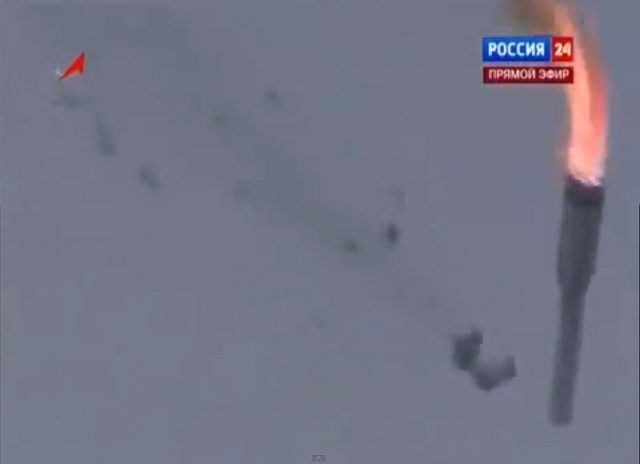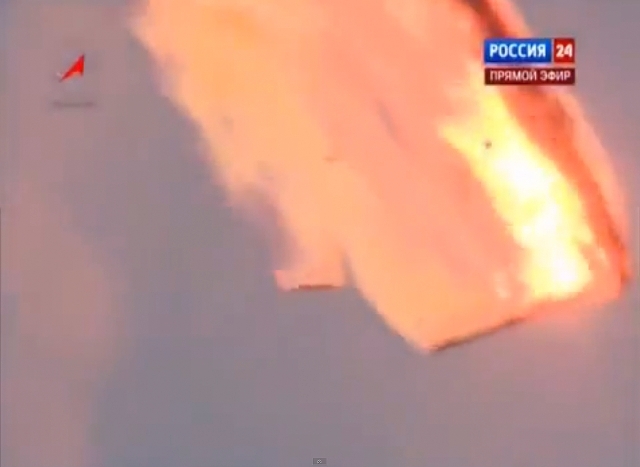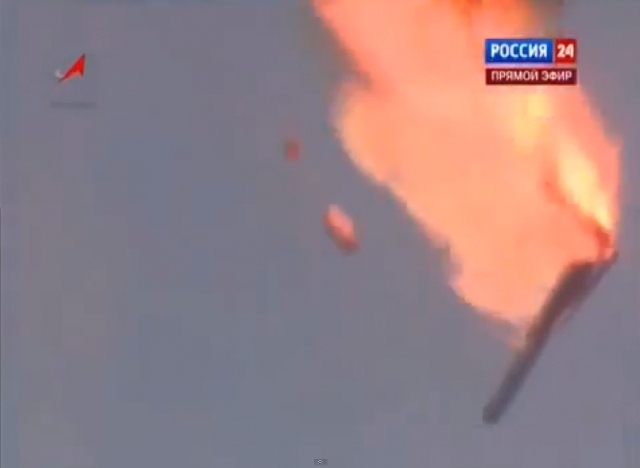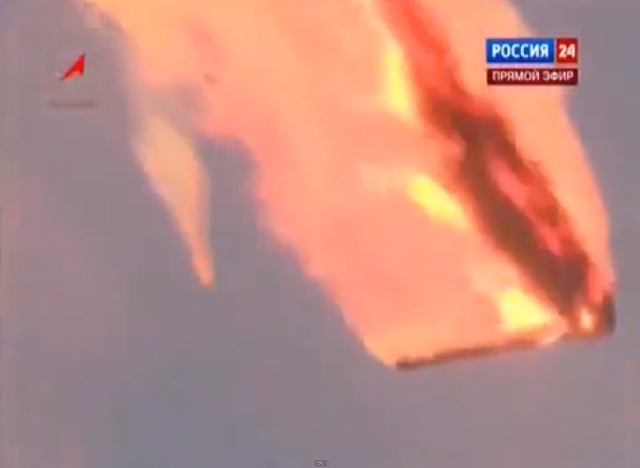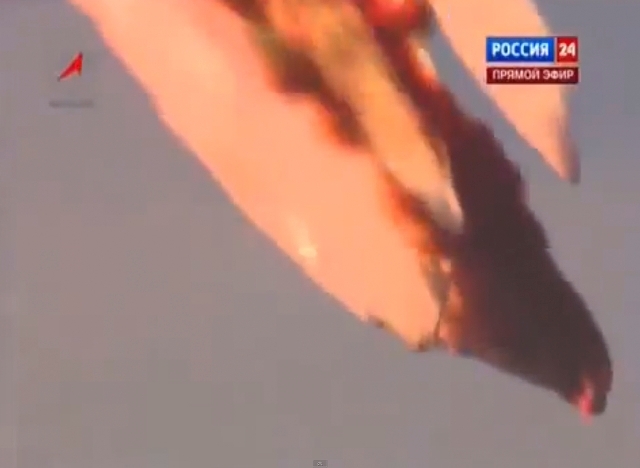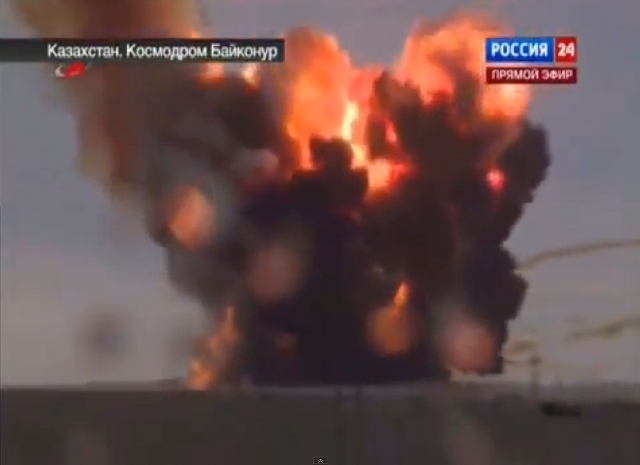Russian booster rocket crashes in Kazakhstan
MOSCOW — A Russian booster rocket carrying three navigation satellites burst into flames and crashed on live TV moments after its launch Tuesday, dealing another painful blow to the nation’s space prestige.
The failure follows a long string of launch mishaps that could tarnish Russia’s reputation and eventually cost it a share in the lucrative satellite launch market. It also hurt one of the Kremlin’s pet projects, the GLONASS satellite navigation system intended to serve as a Russian equivalent of the U.S. GPS system.
The Proton-M booster suffered an emergency shutdown of its engines 17 seconds into the flight and crashed some 2 kilometers (over a mile) from the launch pad on the Baikonur cosmodrome in Kazakhstan, the Russian Space Agency said in a statement.
Live footage on the state news channel Rossiya-24 showed the rocket tilt to one side shortly after the launch, curve downward, catch fire and crash in a giant fireball.
The powerful explosion left a 200-meter (218-yard) crater and sent plumes of highly toxic rocket fuel into the air, prompting the administration of the city of Baikonur 80 kilometers (50 miles) away to order residents to close windows and stay home for several hours.
The ban was lifted a few hours later after the authorities said that most of the rocket fuel appeared to have burned in the crash and rain quickly dispelled the poisonous cloud.
Russian officials reported no casualties or damage, and Kazakhstan’s space agency issued a statement saying no toxic components were spotted in air or soil in the area. However, several Kazakh environmental activists quickly demanded an end to Russian launches from the Soviet-built cosmodrome.
Russia pays Kazakhstan $115 million in annual rent for Baikonur under a deal that runs through 2050. Russia also spends $160 million per year operating the sprawling complex, which is used for all its manned launches and most commercial satellite launches.
The ex-Soviet neighbors have engaged in tense arguments over the cosmodrome in the past. Kazakhstan once suspended Russian launches after a failed Proton launch that spilled toxic fuel, and recently sought to put limits on the number of the heavylift Russian rockets.
The Proton booster that has a payload of up to 20 metric tons has been the main cash cow of the Russian space program, used for putting heavy communications satellites into high orbits.
It also has served as the launch vehicle for Russia’s GLONASS navigation satellites. Russia has boasted about GLONASS as an equivalent of the U.S. GPS, but it has struggled to make the system fully operational due to a short lifespan of its satellites and launch failures.
In December 2010, a Proton failure led to the loss of three GLONASS-M navigation satellites. An investigation revealed that the mishap was caused by extra fuel loaded into the booster because of human error.
In August 2011, a state-of-the art telecommunications satellite was lost when a Proton upper stage suffered a malfunction. An official probe concluded that the failure was caused by an error in calculations.
Another failed Proton launch in August 2012 led to the loss of two communications satellites.
Russian space officials have blamed these and other recent failures on manufacturing flaws and engineering mistakes. But observers say that the problem is rooted in a post-Soviet industrial meltdown that has stalled the modernization of the space industry and led to a brain drain and a steady erosion of engineering and quality standards.
Russia’s Prime Minister Dmitry Medvedev on Tuesday ordered his deputy to punish those responsible for the latest failure and come up with a plan to tighten control of the space industry.
——
Nataliya Vasilyeva contributed to this report.



